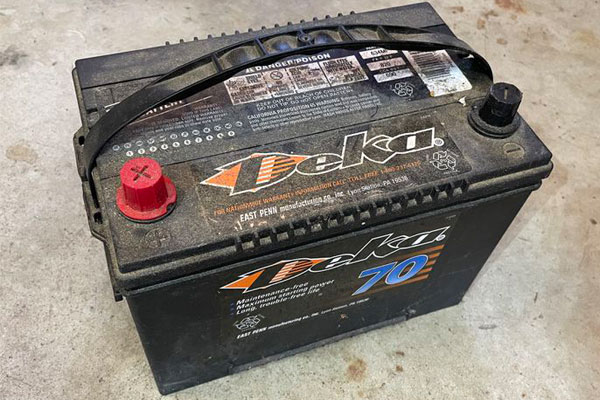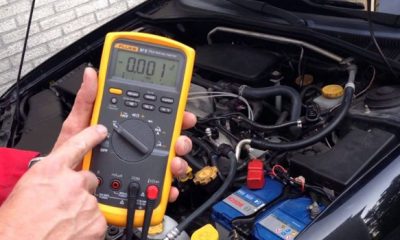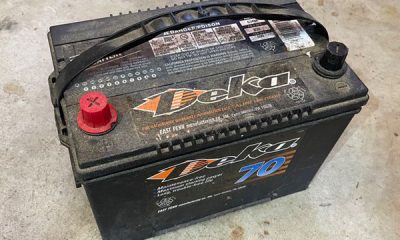It’s typical to hear from drivers and even battery chargers that you shouldn’t keep your car batteries on the floor for long periods of time.
Their rationale is that leaving your car battery on a cold, concrete floor without any insulation, such as a wooden plank or an old rag, could cause it to discharge extremely quickly or perhaps cause irreversible damage.
Is this factual, or is it just rhetoric?

To begin, consider the actual substance that comes into contact with the floor when your car battery is placed on the floor.
It is a strong material (Polypropylene) that acts as an electrical insulator.
Your car battery supplies electrical power to your vehicle through terminals on top of it, which have no contact with the ground.
That was not always the case.
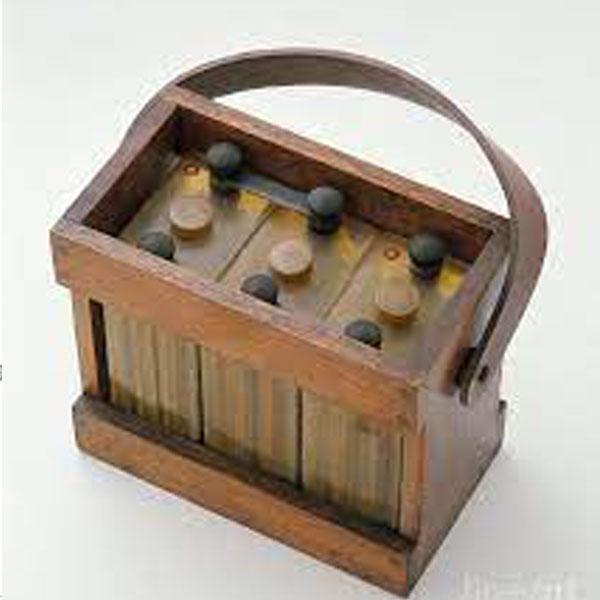
Car batteries used to be constructed with wooden cases, which meant that if they were left on the floor for long periods of time, the dampness in the floor would soak into the wooden box, causing current to flow onto the floor, gradually depleting your car battery.
Battery manufacturers eventually changed the casings to toughened rubber. This was ineffective in resolving the issue.
A wet concrete floor reacts with the carbon in the rubber battery casings, causing an electrical current to flow.
As previously stated, today’s automotive batteries are enclosed in a strong plastic casing that completely insulates the battery.
A clean concrete floor is an ideal location for storing your car battery.
Concrete has a high thermal mass, which helps to reduce temperature swings in the battery compartment.
However, yes. Because of poor maintenance, your battery may “leak” power between the terminals.
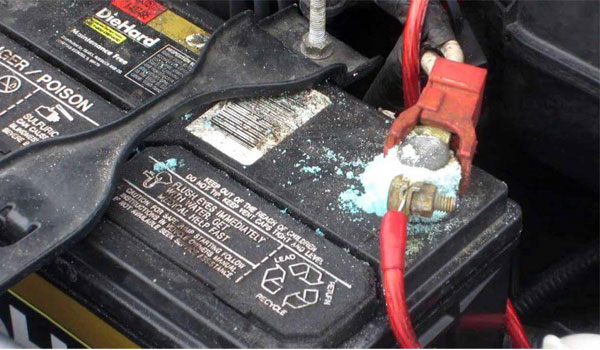
Acid escaping from the cells might carbonize the dirt and make it electrically conductive if dust and debris accumulate between the terminals. As a result, damage and progressive discharge occur.
This can be avoided by cleaning the tops of your battery casings and the terminals on a regular basis when doing battery checkups.
Self-discharge is also a common occurrence when a battery is stored for an extended period of time. This can be mitigated by using a Trickle Charger.
With the recent rains, you may also want to know that placing your car battery on a cool (not wet) floor is fine. Chemical activation is reduced in a cold battery. This is why, in cold temperatures, older and poorly maintained car batteries are reluctant to crank (newer batteries are not bothered)
Warmth improves battery performance — when the battery is warm, reactions are faster, and when it is cold, reactions are slower.
Lead-acid batteries are not damaged by cold temperatures unless they are significantly discharged or misused.
Ensure that your batteries are fully charged at all times. It should be cleaned on a regular basis. Store

 News1 week ago
News1 week ago
 News1 week ago
News1 week ago
 News1 week ago
News1 week ago
 News4 days ago
News4 days ago
 News1 week ago
News1 week ago
 Latest Cars1 week ago
Latest Cars1 week ago
 News1 week ago
News1 week ago
 News1 week ago
News1 week ago
